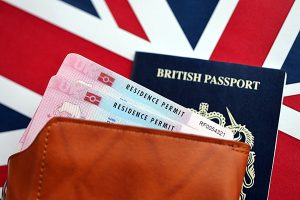Moving overseas looks glamorous on Instagram. The beachfront sunsets, rooftop brunches and weekend trips make expat life feel like a never-ending holiday. Behind the photos sits a spreadsheet, or it should. Your ultimate expat budget is the quiet engine that keeps the adventure running. Skip the prep and you may end up counting coins at the end of each month, even on a sizeable salary. Let’s craft a plan that lets you enjoy your new home without money worries.
Start With the Big Picture


Many new expats rely on rule-of-thumb estimates: “Rent should be a third of income” or “local food is cheap”. Such shortcuts mislead because costs swing wildly between cities. A studio flat in Dubai Marina will dwarf the rent for a two-bed in Lisbon. Your first task is to gather real numbers from local forums, estate agents and cost-of-living sites.
Money myth to ditch now: “Expat packages cover everything”. Fewer firms pay schooling, flights or housing today. If your contract lacks these perks, budget for them.
Pin Down Your Income Streams
List every source: monthly salary, freelance contracts, rental income back home, dividends and interest. Convert them into the currency you’ll spend day to day. If pay dates vary — common with freelance work — average the past six months, then build cash buffers to smooth lean periods.
Questions you should answer:
- Will your employer transfer directly to a local bank?
- Do you receive bonuses in sterling while paying bills in dirhams, euros or pesos?
- How often will you repatriate money?
Knowing the flow helps you tackle exchange risk.
Price Your New Life City by City
Break spending into three layers.
- Housing
Research three neighbourhoods that suit your commute and lifestyle. Ask letting agents for actual contracts, not listing prices — ads often understate final rent. Check whether rent is paid yearly upfront, quarterly or monthly. - Utilities and Connectivity
Hot climates mean high cooling bills. Fast home internet can cost more than in the UK. Factor in mobile data too; roaming drains pockets. - Food, Fun and Fitness
Import duties raise the price of British staples such as cheddar or baked beans. Dining out often costs less than buying those imports. Fitness clubs abroad sometimes carry hefty joining fees.
Spot the Hidden Costs Early


Tame Currency Fluctuations
Exchange rates move daily. Over a year, a swing of ten per cent can wipe out a pay rise. Protect yourself with a combination of:
- Multi-currency accounts — Hold sterling, euros and local cash in one place and swap when rates look friendly.
- Regular transfers — Send the same amount on the same date each month; consistency averages out peaks and troughs.
- Forward contracts — Lock in a rate for large, known costs such as school fees.
Treat currency movement as another bill. Set aside a cushion that covers a five percent shift in either direction.
Build a Flexible Budget Framework
A classic 50-30-20 split (needs, wants, savings) needs tweaks abroad. Housing might claim 40 per cent in Hong Kong yet only 20 per cent in Bali. Adjust the bands to suit local reality, but keep savings above 15 per cent if long-term wealth is a priority.
Create sinking funds for irregular costs like family flights, car insurance or furniture. Name each fund and move money into it straight after payday.
Track Spending in Real Time
Cash machines abroad often charge per withdrawal, so locals rely on cards or apps. Many budget apps handle multiple currencies and auto-convert at the daily mid-market rate. Set a weekly ten-minute review: glance at each category, spot overspending and shift course.
Trim Costs Without Cutting Comfort
One phone call can save thousands. Negotiate rent by showing comparable listings or offering to pay several months upfront. Ask your HR team whether group rates exist for health insurance or gym membership. Sign up for resident discount cards; they often slash entry to attractions by half.
Plan Your Tax Duties on Two Fronts


Save and Invest From Overseas
Hold a six-month emergency fund in a stable currency such as sterling or US dollars. For long-term investing, consider an offshore platform regulated in a robust jurisdiction. Diversify across index funds, bonds and perhaps property back home. Automatic monthly contributions help you stick to the plan.
Shield Your Budget From Shocks
Medical evacuation cover sounds extreme until you need it. Policies cost a fraction of one air-ambulance flight. Job-loss protection that pays three months of salary buys breathing space if the market turns. Review cover annually.
Budgeting as a Family
Give children age-appropriate pocket money in local currency. It teaches exchange-rate maths. Plan a family travel fund so last-minute school holidays do not blow up the budget. Buying flights early and using regional low-cost carriers saves plenty.
Put Tech to Work
Top apps for expats include:
- Revolut and Wise for low-fee transfers.
- YNAB and MoneyWiz for envelope-style budgeting across currencies.
- Splitwise for sharing costs with flat-mates.
Test a few; the best app is the one you open daily.
Review, Refine, Repeat
Life abroad shifts fast. Landlords raise rent, children switch schools, exchange rates jump. Schedule a quarterly budget check. Compare planned versus actual numbers, adjust percentages and set fresh targets. If expenses climb by more than ten per cent, re-work the entire plan rather than nipping at the margins.
Key Takeaways
- A written budget turns guesswork into clear action.
- List income in the currency you spend to see real buying power.
- Research local costs line by line, housing, utilities, food and hidden fees.
- Treat currency swings as predictable, not random; build protection.
- Review the plan each quarter and tweak before problems snowball.
The Ultimate Expat Budget: Your Roadmap to Financial Freedom Abroad
Your ultimate expat budget is more than a spreadsheet; it is a statement of intent. It frees you to savour new cultures, grow your career and still hit long-term goals. Invest the time now, keep the plan flexible and future-you will thank present-you.
Frequently Asked Questions
- How soon should I start budgeting before an international move?
Begin at least six months out. Early research guides salary negotiations and relocation packages. - What percentage of income should I hold in local currency?
Keep one to two months of expenses locally for day-to-day spending and short-notice costs. - Is it better to pay rent in sterling or local cash?
Pay in local cash when possible. It avoids surprises if the pound weakens and landlords often quote lower rates. - How do I protect savings from a sudden currency drop?
Diversify: hold cash in two strong currencies, use multi-currency accounts and transfer only what you need. - Do I need a UK bank account after becoming non-resident?
Yes. It simplifies bill payments, credit history and future property purchases. Choose a bank that supports expats and online service.






